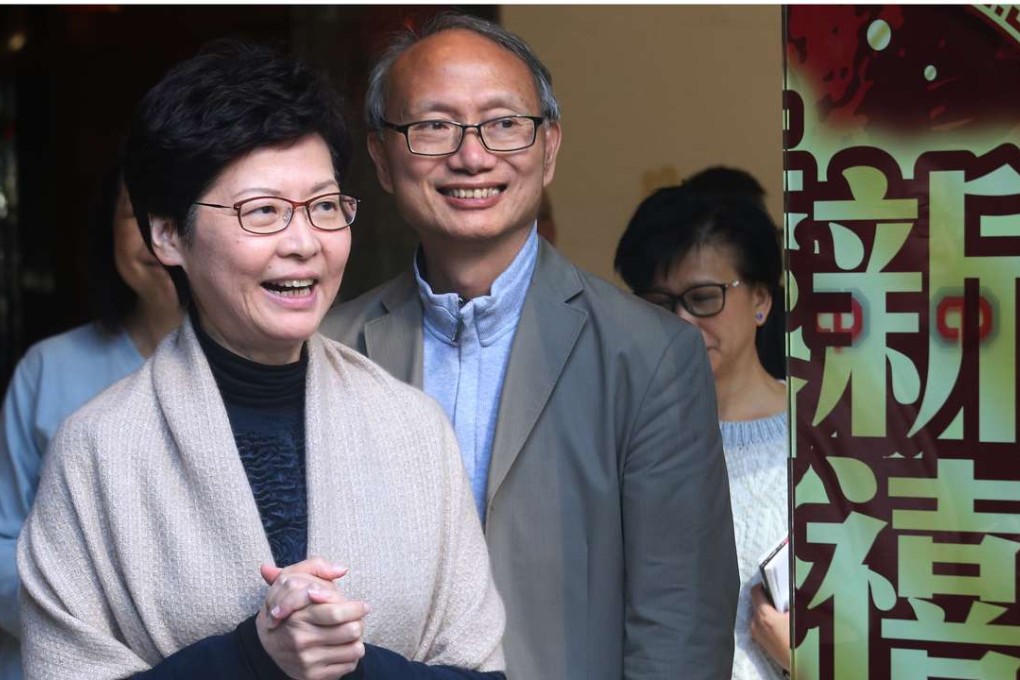Lack of popular mandate would make it hard to govern Hong Kong, Carrie Lam admits
Former chief secretary also clarifies remarks about a constitutional crisis if Beijing did not accept election winner and says she was not attacking rivals

Carrie Lam Cheng Yuet-ngor has admitted there would be questions over her governance if she was picked as chief executive by the 1,194-member Election Committee in March but trailed her rivals in terms of popularity.
The remarks by Lam, who is lagging behind her main rival John Tsang Chun-wah in opinion polls but is widely regarded as the front runner, came amid controversy surrounding a closed-door gathering on Friday at which she warned Hong Kong could face a constitutional crisis if Beijing deemed the winner of the contest unacceptable and refused to appoint him or her.
Critics questioned whether Lam was suggesting electors should not support Tsang. Another candidate, retired judge Woo Kwok-hing, accused Lam of using a “despicable tactic” to attack opponents.
But the former chief secretary clarified her remarks on Sunday and said she was not targeting anyone but just stressing a general principle.
Referring to a possible scenario in which she beats a more popular rival in the election, Lam said: “I will face huge difficulties in governance if I am chosen by the Election Committee as chief executive but lose to another candidate in terms of popularity.